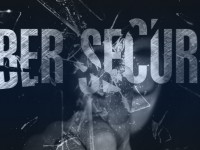While governments, internet service providers, and developers are doing their best to keep the internet safe and enjoyable, browsing, shopping, and communicating with strangers may still carry risks. Even if there’s no cause for paranoia, it would be foolish not to take some basic precautions for a safer digital experience. Here’s what you should do to boost your own and your business’s cyber defenses.
Keep Your Devices Updated
Cyber crooks and developers are in an ongoing race. The former pick and prod at programs, trying to discover weaknesses that could let them inject malicious code or steal data. The latter are constantly patching vulnerabilities and introducing new features. Keeping everything, from the OS to your favorite music streaming app, updated ensures you have the best available defenses and the most advanced features.
It’s also a good idea to occasionally take stock of the programs and apps you have installed. Are there any you don’t use anymore or ones that haven’t received an update in ages? Delete them to both free up resources and make yourself less of a target.
Practice Proper Password Hygiene
Studies suggest the average person now depends on between 70 and 100 passwords for their digital account needs! Even a genius would be hard-pressed to juggle as many unique ones as possible, so we take the easy way and use passwords that are short and easy to remember. The cherry on top is that we don’t bother changing them from time to time, and we’re inclined to go with similar ones for each new service.
Hackers count on this. They have access to lists of frequently used and compromised passwords as well as tools that can penetrate any short password in no time. Unless you use complex and unique passwords for each of your accounts, compromising one could endanger all the others.
Thankfully, password managers like NordPass take the guesswork and tedium out of the process. They can set up as many unique logins as you need, whether for yourself or an office’s worth of colleagues. They store these credentials inside protected vaults, which let you sync across devices, fill logins in automatically, and even securely share them with others you trust.

Start Using Two-Factor Authentication
A password’s uniqueness doesn’t protect it from being stolen if you write the password down somewhere or let it slip. Ordinarily, this would let the thief take control of the account, but not if you enable 2FA. It’s an extra safety measure in the form of a code you receive whenever there’s suspicious activity on your account from a new location. This timely alert lets you change the password and retake control in time.
Be Wary of Scams
Why even try to penetrate strong cyber defenses when you can trick people into giving up access freely? That’s the idea behind phishing, fake text messages, social media offers that seem too good to be true, and other types of social engineering increasingly plaguing the internet.
Phishing is particularly nasty since the attackers successfully mimic supervisors or trusted companies and have a high chance of coaxing the victims into visiting suspicious sites, disclosing sensitive information, downloading harmful programs, or even transferring money to illicit accounts.
Educate yourself and your staff on how to recognize and avoid phishing. Also, block the sender’s address and let your IT department know if you receive such messages on your work address.
Another line of defense against phishing is using passkeys instead of passwords. While passwords are user-generated, managing and creating passkeys require software. In addition, using passkeys generally requires biometric authentication, which is why they are phishing-resistant and provide strong protection against brute-force attacks.

Personal and business data are valuable commodities hackers go to great lengths to steal and benefit from. Realizing its importance and taking steps to protect it puts you ahead of the curve. After all, why bother with a tough nut when there are careless marks out there? Implement our basic tips and continue your cybersecurity education for long-term peace of mind.






Great tips! Online security has become a top priority for me, especially after reading about the risks in this article. One key measure I’ve adopted is enabling two-factor authentication for all my accounts. It gives me peace of mind knowing that my personal and business information is much safer now. Highly recommend others to start using it too!
I created a profile on hirerush.com two years ago (as a notary), I’ve come to really appreciate the importance of online safety, especially when connecting with clients. This article covers essential tips that every small business owner should know—whether you’re managing your online presence or just ensuring private client information stays secure. Since joining HireRush, I’ve seen firsthand how a safe online platform can help us build trust and reach more clients. Thanks for sharing these practical steps to keep both businesses and customers safe!